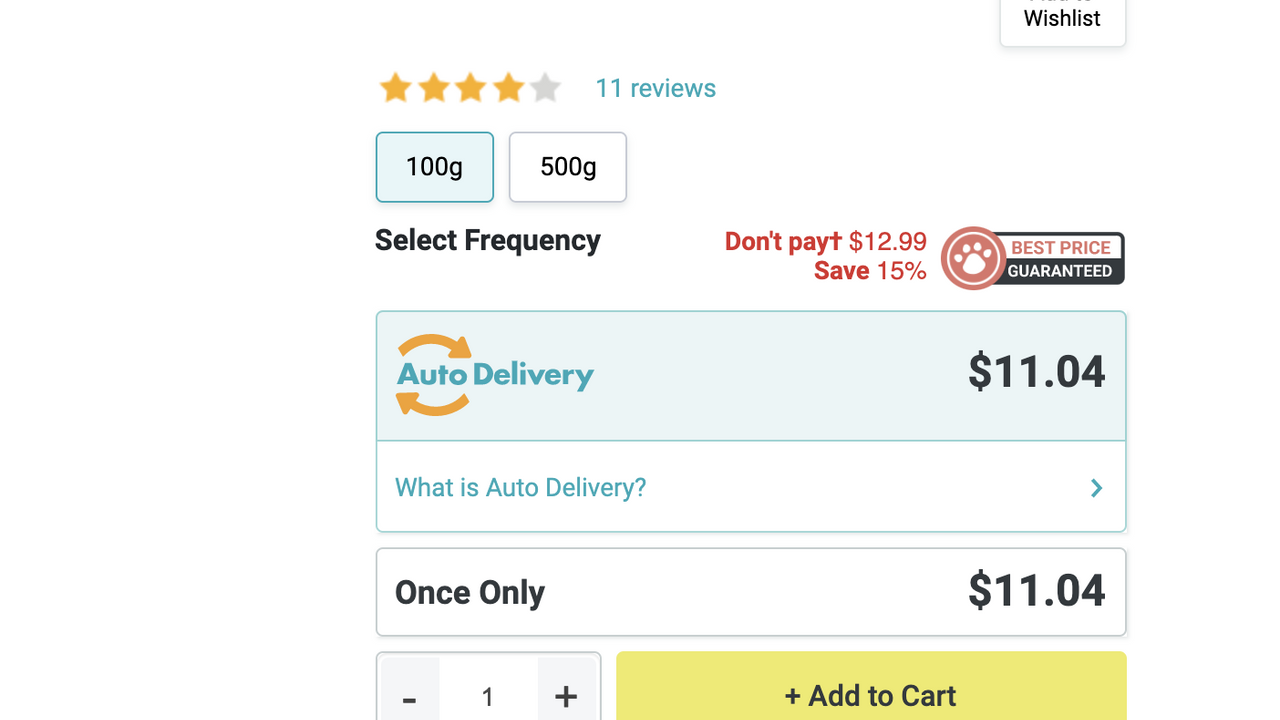How time of day affects decisions

The decisions you make at the end of your day are likely to differ from those you make earlier on.
Even if you are a highly trained doctor.
That’s what researchers discovered when they tracked 204 doctors over 17 months and 21,867 visits.
As the day wore on, the doctors prescribed more unnecessary antibiotics. 5% more, in fact.
👉 Decision fatigue has a bearing on the types of decisions we make.
While researchers have different theories on why and to what extent, as a general rule people ...
Is this manipulative?

What do you think of this?
It’s the product order page for a pet supplies website.
More specifically, what do you think about the auto delivery being defaulted?
Well, from personal experience I can tell you it is difficult to recognise you are committing yourself to auto-delivery and this inadvertent decision only occurs to you when boxes of Chicken Breast keep appearing on your doorstep.
So, is this business manipulating its customers?
Is nudging manipulative?
It’s an important question a...
Helping customers justify their decision to others
In a recent article I wrote about research into self-justification which found consumers are much more likely to avoid unpleasant or confronting information (like calories on a menu) if they are given “cover”.
In other words, they’ll skip the café with calories on the menu if they can hang their decision on an unrelated reason, like the reviews that café received for its service.
We’re masters at finding reasons to justify to ourselves what we want to do.
But how do we justify decisions to ot...
How to prioritise projects
Every business I've worked in or worked with has struggled with too many priorities. So in this clip I run through four behaviourally nuanced questions to shift and sort what's really most important.
By asking the four questions you'll be able to slot each project into one of the following categories:
Must Do = a clear priority for the business. Life would be significantly worse if you don't proceed.
Nice to do = some upside but could disperse focus if included.
Could do = outcomes are too s...

